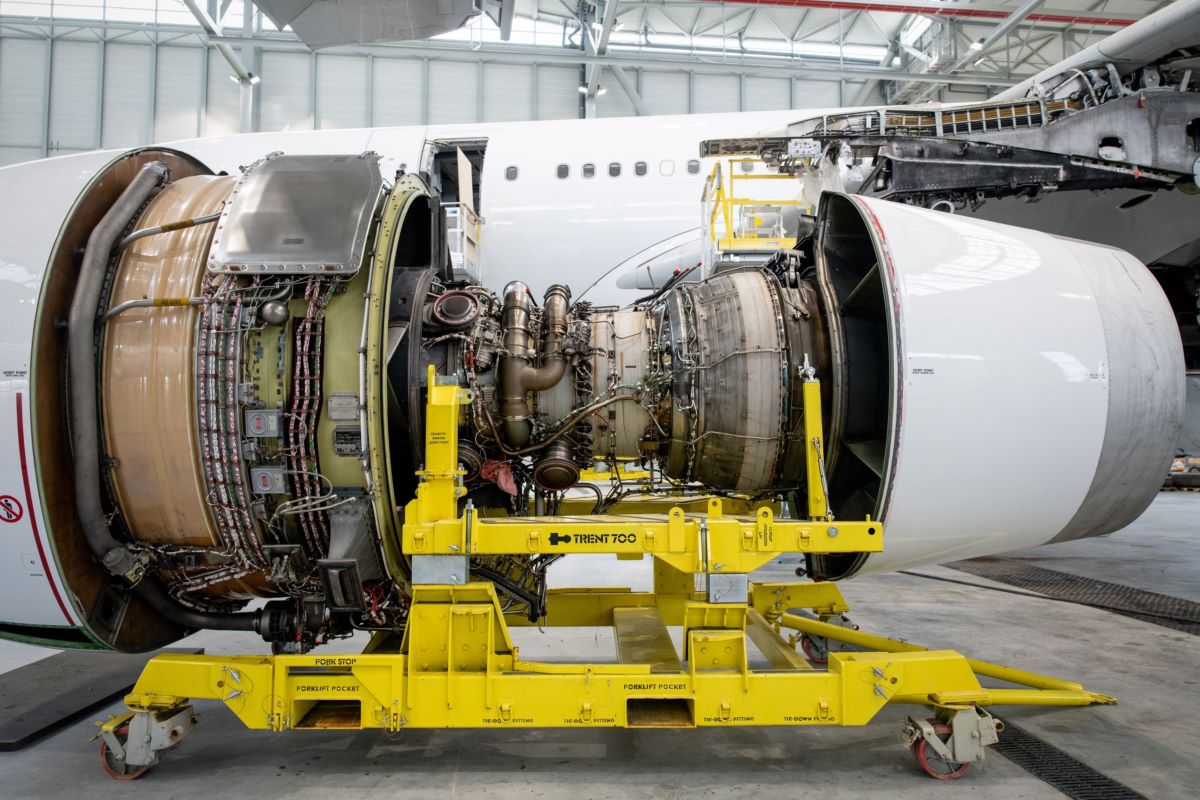Body Has No Right Over Its Organs? P&W Denies Go First Of Engine Rights
Go First Pushed To Last As Pratt And Whitney Declares Former’s No Rights To Engines

In a significant blow to Indian airline Go First, Pratt & Whitney (P&W), the renowned aircraft engine manufacturer, has declared that the airline has no rights over its engines, leading to the termination of several leases. The move has placed Go First in a challenging position and has raised concerns about the future of the airline’s operations.
No Engine Rights:
The unexpected revelation came to light yesterday when P&W issued a statement clarifying the status of the engines used by Go First. According to the engine manufacturer, the contractual agreements between Go First and P&W do not grant the airline the right to continue operating the engines. Consequently, P&W has decided to terminate the leases associated with those engines, dealing a severe blow to Go First’s fleet.
Go First, formerly known as GoAir, is a low-cost carrier based in India. With a fleet predominantly of Airbus A320neo aircraft, the airline heavily relies on P&W engines to power its operations. Terminating these leases will force Go First to ground a significant portion of its fleet, potentially disrupting its flight schedule and services. The reasons behind P&W’s decision to revoke the engine rights and terminate the leases remain unclear.

Industry analysts speculate that the move may be related to contractual disputes or issues surrounding maintenance and performance concerns. However, neither Go First nor P&W has provided specific details regarding the root cause of the disagreement. Go First’s management is racing against time to find a solution to the crisis. The airline intends to engage in urgent discussions with P&W to resolve the matter and secure the necessary rights to continue operating its engines.
Such negotiations are crucial for the future viability of Go First, as finding alternative engines or leasing agreements on short notice could prove daunting. Industry experts warn that the situation may have broader implications for Go First’s reputation, financial stability, and customer confidence. The grounding of a significant portion of its fleet will likely lead to canceled flights and inconvenience for passengers, potentially resulting in loss of revenue and customer loyalty.
Go First To Tackle The Challenge:
The airline must act swiftly and transparently to reassure its passengers and stakeholders about its ability to navigate this challenging period successfully. As news of the engine rights and lease terminations spreads, shares of Go First’s parent company, the Wadia Group, have experienced a significant drop in value.
The market’s reaction underscores the gravity of this case and calls for speedy action to restore investor confidence. While Go First and P&W discuss finding a resolution, travelers booked on Go First flights are advised to monitor the airline’s announcements and seek alternate travel options if necessary. It remains to be seen how this crisis will unfold and what steps Go First will take to mitigate its impact on operations and regain control over its engine fleet.

The aviation industry will keenly watch the developments surrounding Go First as it attempts to overcome this unexpected setback. The outcome of these negotiations will undoubtedly have far-reaching implications for the airline and the broader Indian aviation landscape. The engine rights dispute and termination of leases between Go First and Pratt & Whitney (P&W) carry significant implications for the airline and the broader aviation industry.
The ending of engine leases means that Go First will have to ground a substantial portion of its fleet. This will lead to disruptions in its flight schedule and operational capacity, potentially causing flight cancellations and inconvenience for passengers. The airline must make alternative arrangements to minimize the impact on its operations. The grounding of aircraft and potential service disruptions can have severe financial consequences for Go First.
Termination To Potential Ruin Of Reputation:
The engine rights dispute and lease terminations could harm Go First’s reputation among passengers, investors, and industry stakeholders. Flight cancellations and service disruptions can erode customer trust and loyalty. Negative publicity surrounding the issue may also deter potential customers from choosing Go First in the future. Rebuilding reputation and regaining trust will be crucial for the airline’s long-term success.
The airline may face increased costs for finding alternative engines or leasing agreements on short notice. Loss of revenue due to canceled flights and a decline in customer confidence could further strain its financial stability. The market’s reaction to the news of the dispute and lease terminations may lead to a decline in investor confidence in Go First’s parent company, the Wadia Group.

Share prices have already experienced a significant drop, highlighting the concern among investors about the airline’s prospects. Restoring investor confidence will be vital for securing financial support to navigate this challenging period. The developments surrounding Go First can have broader implications for the Indian aviation industry. It raises questions about the contractual relationships between airlines and aircraft engine manufacturers, highlighting the importance of clear agreements and maintenance compliance.
Other airlines and engine manufacturers may review their contracts and operational practices in light of this dispute. The engine rights dispute and lease terminations may attract regulatory attention, with authorities examining the circumstances that led to the issue. Regulatory bodies may assess the compliance of both Go First and P&W with industry standards and contractual obligations, ensuring the safety and reliability of operations.
Proofread & Published By Naveenika Chauhan




